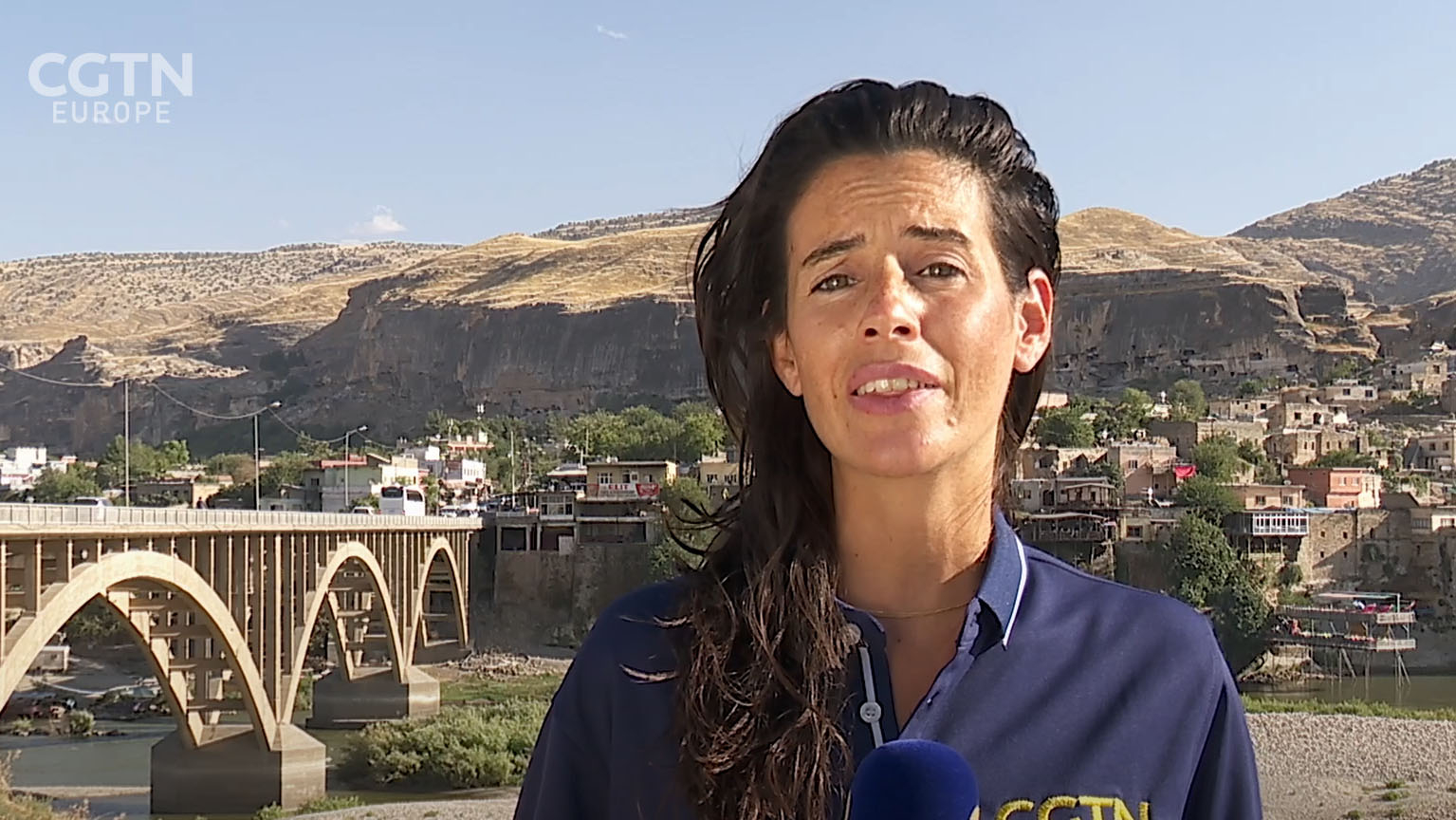
Kurdish fighters in the battle for Raqqa. (Credit: GORAN TOMASEVIC/Reuters)
Kurdish fighters in the battle for Raqqa. (Credit: GORAN TOMASEVIC/Reuters)
Fears are rising that the US decision to withdraw from northern Syria could open the door to a resurgence of the so-called Islamic State (IS), as the region is once again thrown into chaos.
The US announced it will stand aside as Turkey carries out it's "long-planned operation into northern Syria." Turkey wants to clear the area of the Syrian Democratic Forces (SDF). Ankara believes the SDF is a front for the Kurdish-led People's Protection Units (YPG), and the Kurdistan Workers' Party (PKK), which since 1984 has been involved in an armed conflict with the Turkish state.
01:01

The move has effectively abandoned the SDF, which has until now been a key US ally in Syria.
"The [US] statement was a surprise and we can say that it is a stab in the back for the SDF." Kino Gabriel, a spokesperson for the force, told Arabic televison station al-Hadath.
The impending Turkish offensive has thrown into question the fate of thousands of people suspected of being IS members, who are currently being held in Kurdish-run camps.
The US statement noted that, following their withdrawal: "Turkey will now be responsible for all ISIS fighters in the area captured over the past two years."

The SDF's female units have been on the front line fighting IS. (Credit: DELIL SOULEIMAN /AFP)
The SDF's female units have been on the front line fighting IS. (Credit: DELIL SOULEIMAN /AFP)
Experts immediately noted the risks the transfer of responsibility may pose.
Marco Carnelos, former Italian special envoy for Syria, told CGTN Europe that if the Kurds have to withdraw "to leave room to the Turkish troops – bringing the IS prisoners with them – it would be quite complicated and risky. They could lose them or their escape could be more easy."
On Twitter, Brett McGurk, who last year resigned as US president Donald Trump's special envoy to the coalition against IS, warned that "Turkey has neither the intent, desire, nor capacity to manage 60k detainees in al Hol camp, which State and DoD IGs warn is the nucleus for a resurgent ISIS. Believing otherwise is a reckless gamble with our national security."
The SDF, supported by US special forces and air power, captured thousands of IS fighters as they cleared north-east Syria of the militant group. The Kurdish-led forces were hailed as the most effective fighting force against IS, capturing IS's de facto-capital Raqqa in 2017.
Many captured during the fall of IS were foreign fighters and their families, who were detained in camps such as al-Hol, in north-eastern Syria.

The SDF captured IS's de-facto capital Raqqa in 2017. (Credit: ERIK DE CASTRO/Reuters)
The SDF captured IS's de-facto capital Raqqa in 2017. (Credit: ERIK DE CASTRO/Reuters)
The detention of IS fighters and their families has been an issue of contention for Trump throughout his presidency. Repeatedly, the US leader has threatened to let European IS fighters free unless their home nations take responsibility for them.
"The US government has pressed France, Germany, and other European nations, from which many captured Isis fighters came, to take them back, but they did not want them and refused," a White House statement read.
"The US will not hold them for what could be many years and great cost to the United States taxpayer."
Speaking to CGTN Europe, Raffaello Pantucci, a researcher at the Royal United Services Institute in London, thought Turkey might end up "turning loose" the captured IS militants for lack of capacity to handle them all.
"They might be able to detain certain individuals that Western countries are particularly worried about, but it's a big, big job to handle all of them. Would the Turks want to involve all those people in their judicial system?" said Pantucci.
"There is also a very real risk that the Kurds could abandon the camps altogether, as they might be needed to confront the Turkish incursion," he added.
In the Kurdish-controlled camps, an estimated 12,000 men are currently being detained on suspicion of being IS members, 4,000 of whom are foreign nationals.